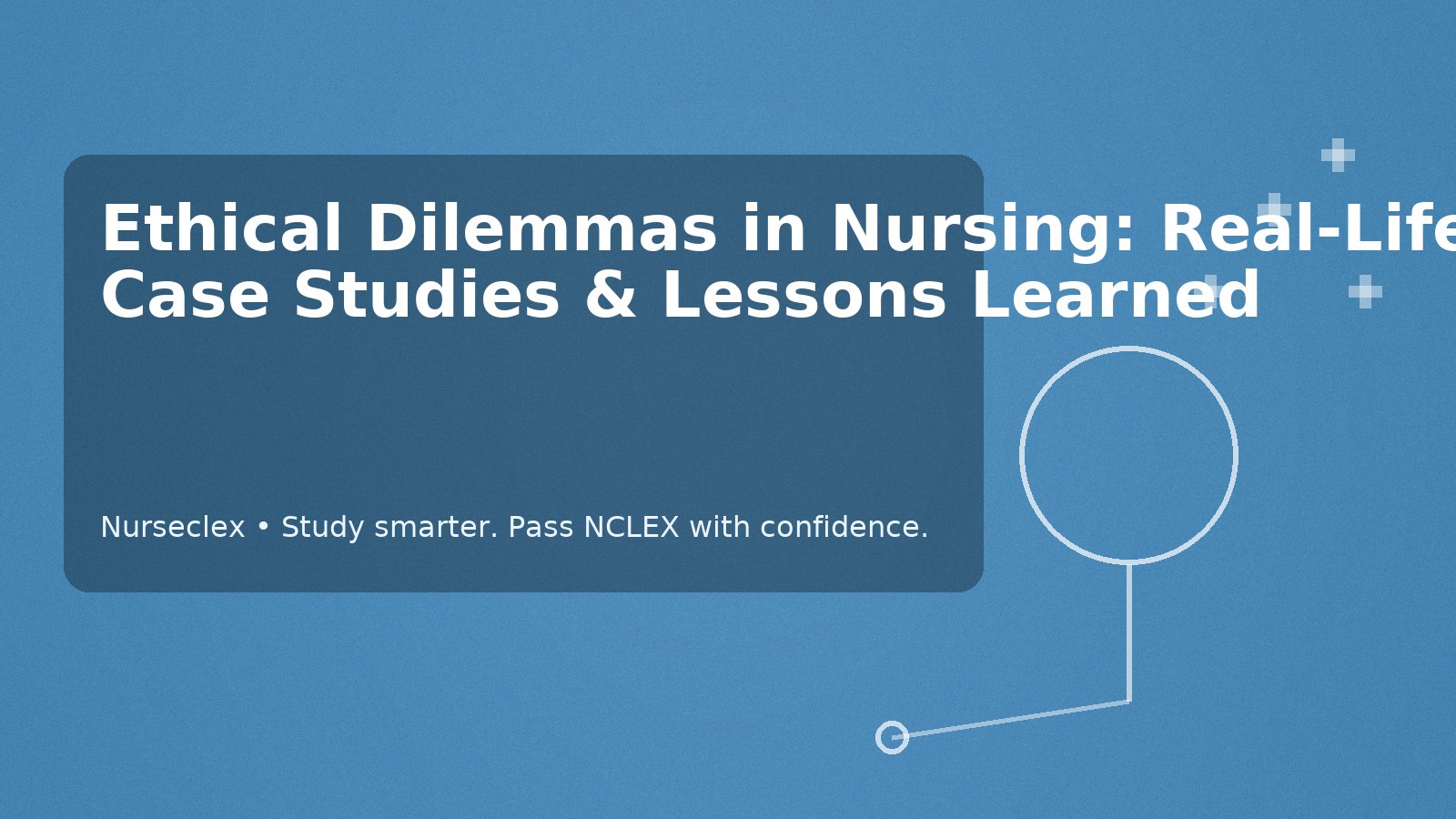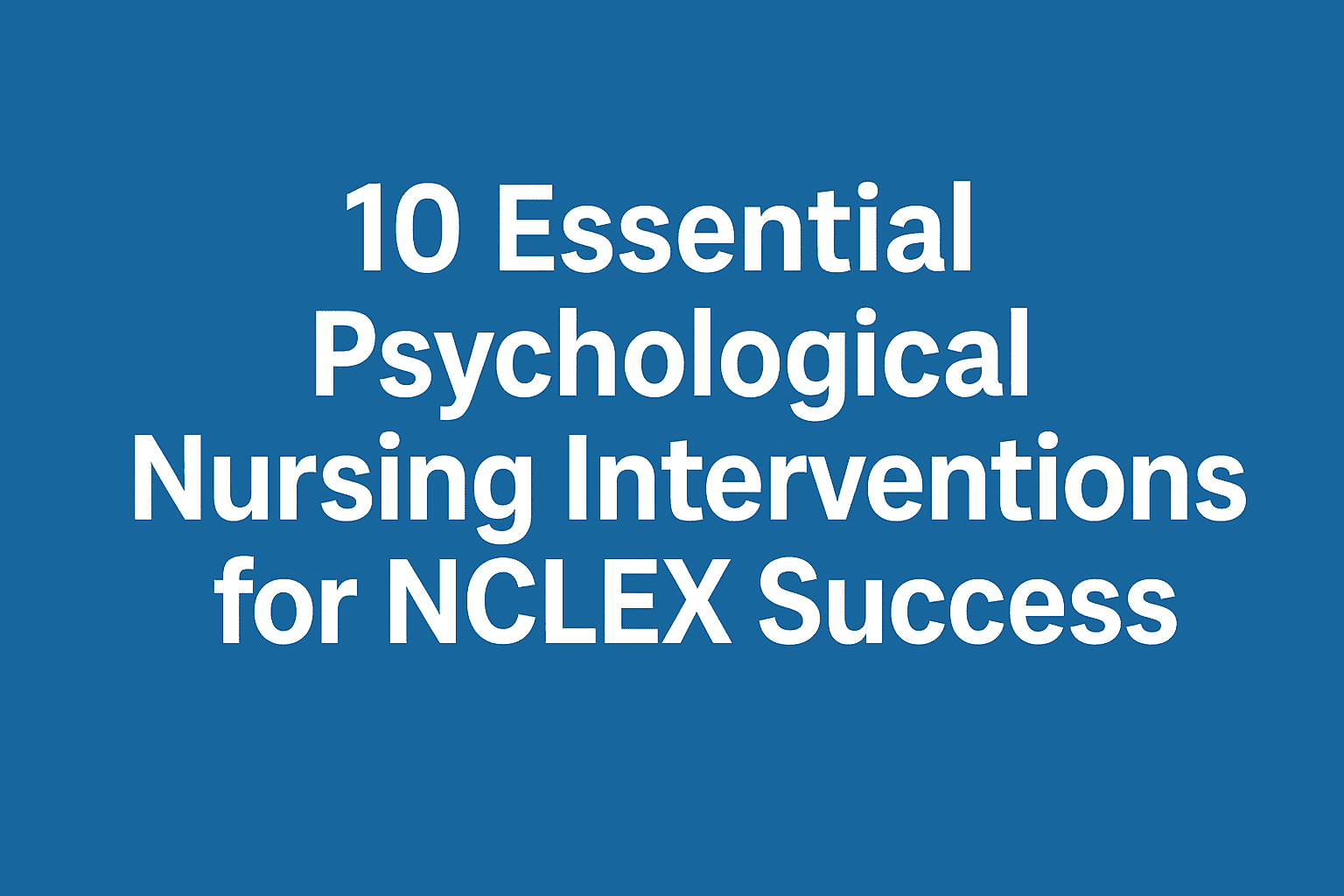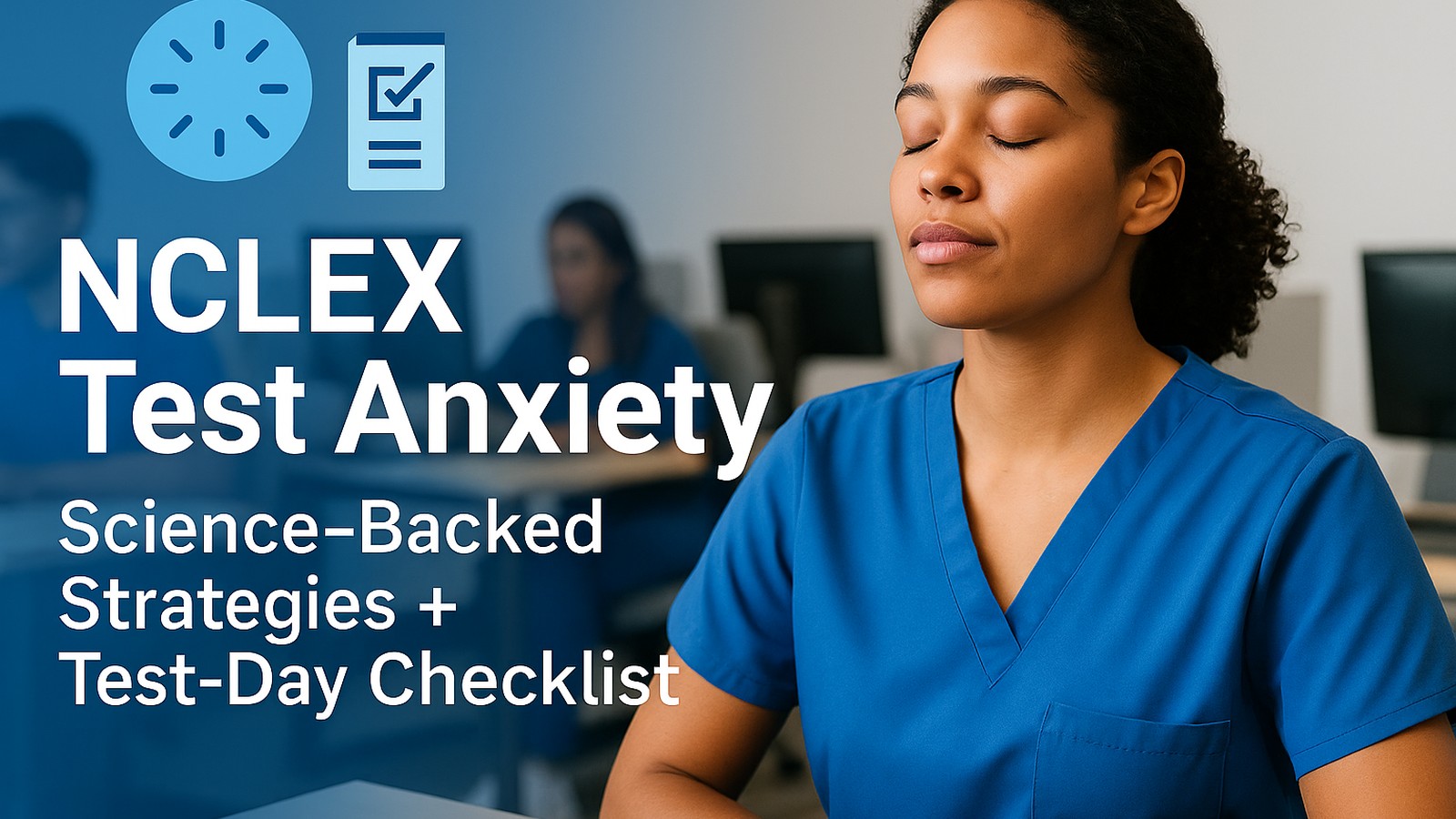Why ethical dilemmas in nursing matter
Nursing is more than meds and vitals. It is compassion, advocacy, and ethics. Every shift brings gray areas that test judgment. The decisions you make shape safety, privacy, and trust. This guide uses real cases to show how to handle ethical dilemmas in nursing—and how to apply the same reasoning on the NCLEX.
See more on Nurseclex:
Case 1: Informed consent that isn’t truly informed
Scenario: A patient signs consent but looks hesitant and confused.
Dilemma: Respect autonomy or slow down to ensure true understanding?
Principles: Autonomy, Beneficence, Non-maleficence.
Best action: Advocate. Ask the provider to re-explain in plain language. Use teach-back. Confirm understanding before proceeding.
NCLEX tip: Consent questions reward advocacy, not box-checking. If understanding is unclear, the nurse must intervene.
Related: Cue Recognition (spot confusion early) →
Case 2: Fairness during a resource shortage
Scenario: A respiratory surge limits ventilators.
Dilemma: Balance justice, clinical need, and chance of benefit.
Principles: Justice, Utilitarian reasoning, Professional duty.
Best action: Follow transparent, evidence-based triage criteria approved by ethics leadership. Apply them consistently. Communicate with empathy. Document clearly.
NCLEX tip: Prioritize time-sensitive threats and patients with higher likelihood of benefit (ABCs, perfusion, neuro).
Related: Prioritization frameworks →
Case 3: Confidentiality breach in a public space
Scenario: A staff member shares a patient’s details in a hallway.
Dilemma: Protect confidentiality or stay loyal to a colleague?
Principles: Confidentiality, Integrity, Accountability.
Best action: Redirect the conversation. Report through proper channels. Support a just culture while protecting the patient and the organization.
Practice reminder: HIPAA violations carry legal risk. Authoritative overview (external): U.S. HHS/OCR HIPAA.
Related: Matrix Multiple Response (policy/scope traps) →
Case 4: Refusing treatment vs. beneficence
Scenario: A competent patient with severe CHF declines a recommended procedure.
Dilemma: Respect autonomy even if refusal may worsen outcomes?
Principles: Autonomy, Beneficence, Veracity (truth-telling).
Best action: Verify capacity. Provide balanced education on risks, benefits, and alternatives. Assess values and goals of care. Honor informed refusal. Document the discussion and the plan.
NCLEX tip: If the patient is competent and informed, autonomy guides—even when you disagree.
Related: Drop-Down Rationale (link action → best reason) →
A quick framework for ethical choices (bedside + NCLEX)
-
Define the problem: What is the immediate risk to safety or rights?
-
Name the principles: Autonomy, Beneficence, Non-maleficence, Justice (plus Fidelity/Veracity when relevant).
-
Check scope & policy: What do policy, law, and role scope require?
-
Act + document: Choose the safest first step. Document rationale and who you notified.
-
Evaluate: Did risk drop? What is the next safe step?
Reinforce with:
What the NCLEX is scoring here
-
Recognize cues: confusion, privacy risks, unstable trends.
-
Analyze: which principle applies; what harm occurs if delayed?
-
Prioritize: safety, rights, time-sensitive issues.
-
Generate solutions: advocacy, escalation, policy steps.
-
Take action: the safest first step within scope.
-
Evaluate: reassess and plan follow-up.
Deep-dive: Cloze / Rationale / Matrix practice →
Key takeaways
-
Advocate first when autonomy or safety is unclear.
-
Apply Autonomy, Beneficence, Non-maleficence, Justice consistently.
-
Use policy, ethics committees, and mentors when in doubt.
-
For NCLEX, answer for the step you’re in; do not jump ahead.










